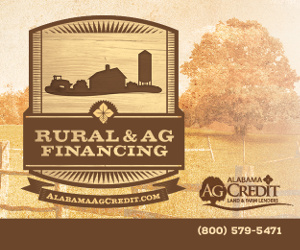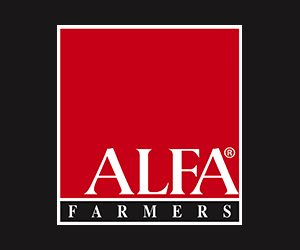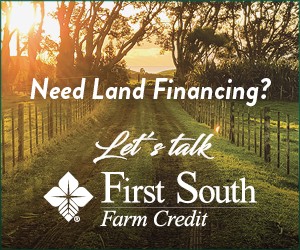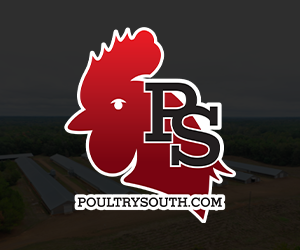From Our Blog
The Land Show Episode 169
The Land Show
January 5th, 2019
Pam Swanner, of Alabama Black Belt Adventures, joins us to talk about their 10 year anniversary and the great Big Buck Photo Contest going on right now. Russ Walters shares about erosion control in the Farmland Report. Brian Watts discusses how now is the time for replanting pines in a clear cut. Tim Baker bring us up to speed on the duck hunting in north Alabama during the Outdoor Update.
Transcription
Here’s the transcription of the first segment.
Dave Milton: Hey everybody. Welcome to The Land Show with Dave and Johnny. Well, Johnny B., it is the first edition of The Land Show of 2019. I’m glad to be with you on this beautiful Saturday morning here in Montgomery, Alabama. Good to see you, my friend.
Jonathan Goode: Yeah, you too, man. Happy New Year. Happy New Year. I’m excited to welcome the folks from Thomasville, WJDB there is carrying The Land Show for the first time this morning, so we’re excited to have them with us. So welcome Thomasville, Alabama. Man, it’s good. We took last week off. We gave it a rest for a week, got to spend some time with family and friends. How was your holiday season?
Dave Milton: Man, it was great. We went to Nashville, went to the, took my kids, went to the bowl game. I tell you, Nashville’s a boom town. It’s unbelievable how it’s booming and congratulations to both Alabama and Auburn had big wins and Alabama playing for the national championship next week, so a big time. A lot of good games, a lot of eating and seems like every year at the deer camp, Johnny, I do a little more cooking, a little more eating and a little less hunting. Not a lot of hunting was going … It was more fishing weather.
Jonathan Goode: Every camp needs a camp cook, man.
Dave Milton: Well, we did a lot more bass fishing. It was kind of warm and I’ve gotten to the point in life that I’m not really mad at them anymore. I just enjoy hanging out with everybody.
Jonathan Goode: Well, you’re just as likely to snag one with a hook as much rain as we had in the last week, man.
Dave Milton: Well, I’ll tell you, pond management, if you like to cook like I do, is pretty satisfying when you take those little bass and keep them. That’s one of the most underrated fish, the little small pond bass. You need to keep a lot of them if you’re going to manage a bass lake properly. We probably cleaned and cooked 30 to 40 little pond bass, a couple of our ponds at the deer camp. Well, they were delicious.
Jonathan Goode: Awesome, man. What recipe did you use? Did you grill them or fry them?
Dave Milton: I just went old-fashioned. I just cut up the home fries and I got kind of a patented dip that I batter them in and then I put a little Zatarain’s on top there, little beer batter and Tabasco, mustard. Mustard’s a key, too. Makes them stick good. Put a little mustard in there, a little heavy cream, little eggs, beat them all up, shake them, I like to shake them. I like to fry them fast and they’re delicious, especially in the winter time. Winter time fish are actually the best, that cold water. Winter time fish are the best.
Jonathan Goode: Well, that sounds good, and I’ve seen your patented recipes. It’s really whatever’s in the cupboard is what’s going on the meat. I like it. It always ends up good. We had a good break. I got to … I killed one deer. Whitney says I’m on the hook for two more, so got to fill up the freezer. Really, have just enjoyed, I don’t take a lot of downtime, but did the past couple weeks.
Dave Milton: Good.
Jonathan Goode: Just enjoyed time with family and then the rain, not many folks wanted to get out and look at stuff in the rain, so anyway, I’ve just enjoyed a lot of time with family and looking forward to getting after it here.
Dave Milton: Did you all get to go hunting?
Jonathan Goode: Yeah. I mean I got to sit out a little bit. Hadn’t seen nearly as many deer as we’d like to but 2018 was such a good year for us. We were blessed thanks to all of our customers and clients that allowed us to help them with the purchase and sale of land through our day job, Southeastern Land Group-
Dave Milton: Thanks to all the sponsors of The Land Show who make it happen.
Jonathan Goode: Yeah. Yeah. It’s been great, man, and looking forward to even better things in 2019. We’re starting it off right by adding a new station and hopefully, we’ll be able to do that a couple more times through this year. Man, I’m excited. Let’s talk to Miss Pam Swanner. She’s our first guest. Miss Pam is with the Alabama Black Belt Adventures and she really promotes the part of the state where I live and one of the most well-known hunting and fishing areas across the state. Miss Pam, how are you today?
Pam Swanner: I’m great this morning. Ready to get this new year started off with a bang. No pun intended.
Jonathan Goode: Well Happy New Year. Yeah, Happy New Year and thanks for being on The Land Show with us. For our listeners, you’ve been on with us before in the past. You all do a great job, but some of our folks are new to us. We’ve added a couple of new stations and tell us about Alabama Black Belt Adventures. What is the mission of your organization?
Pam Swanner: Well, we’ve got our 10th year anniversary coming up this year. It was an initiative that was launched back 10 years ago to promote the Black Belt region and brand it as an outdoor destination. Our market and our focus has been not only the state of Alabama residents, those hunters and fisherman, but those outside the state as well. We want them to come into our region, spend their money, infuse those economic, those dollars that are important to our economic development and then go home.
Jonathan Goode: Sure. Yeah. And maybe buy a piece of land and stay. That’d be great.
Pam Swanner: There you go. Benefit for you.
Jonathan Goode: You guys are great ambassadors. I can’t believe it’s been 10 years, Pam. Has it really been that long?
Pam Swanner: It will be 10 years in August this year.
Jonathan Goode: So you started this job when you were 15, that’s great. I think that’s awesome.
Pam Swanner: Yeah.
Jonathan Goode: But now you came from a tourism background, is that right?
Pam Swanner: I did. That has been my career throughout my adult life. I’ve always enjoyed it. You learn about the part of your state that you’re working in, about the different assets for activities and learning and it’s a fun industry to be in.
Jonathan Goode: Right. And the industry that we represent, hunting and fishing and the outdoors and it goes beyond that, I guess, with the canoe trails and all those things, but there are so many great folks across the west and central part of Alabama. I guess you all promote Black Belt all the way over from the Georgia line to the Mississippi line, is that right?
Dave Milton: And in Lee County, yeah.
Pam Swanner: That’s right. We have 23 counties that make up our footprint in the Black Belt region, which includes some nontraditional Black Belt counties like Tuscaloosa and Lee County and a couple of others. We started out 10 years ago primarily focusing on hunting and fishing because that is what was identified as the economic development tool for the Black Belt. We’ve since then kind of expanded our representation to include what I call the soft adventure, like the canoeing, the hiking, biking and those kinds of activities. This coming year we’re even taking that a step further and going to be introducing a new marketing campaign called The Flavors of the Black Belt.
Dave Milton: Ooh.
Jonathan Goode: Oh, wow.
Pam Swanner: It will highlight the consumable products that are made in the Black Belt region.
Jonathan Goode: That’s very cool. Well, if you need judges to do any taste testing-
Pam Swanner: Sure.
Jonathan Goode: Dave and I will be happy to volunteer one of us to come to some of your events. You mentioned some of those softer outdoor experiences, the canoeing and those sorts of things and, I tell you, bird watching has become a big thing through this part of the state, hadn’t it?
Pam Swanner: It has. It’s been around, you know, these folks who enjoy birding, some of them are avid birders. They have a life checklist they work on every year to check off this bird, I’ve seen this bird and these folks are well-educated, have expendable income and just a great group of people to have in your community.
Jonathan Goode: Right. Well, I love it when I pull up … We have Perry Lakes Park in Perry County where I live and they have taken down an old fire tower form the Talladega National Forest and they’ve set it up right on the edge of a big swamp area there along the Cahaba River and it’s some of these Oxbow lakes and they’ve set this birding tower up and it, gosh, I don’t know, it’s maybe 100, 130 feet, something like that. You can go all the way up and I’m not exactly sure what the terms are, but all the different strata of the trees, you can go all the way up and see the birds that inhabit those areas. It’s really neat. We get a lot of tourists that come to Perry County just to do the birding tour there.
Pam Swanner: Yeah. That’s thanks to our State Tourism Department led by Lee Sentell. They have been developing, along with the University of Alabama, have been developing a series of birding trails throughout the state now for the past 10 years. They recognized long ago that this was a viable industry and activity that people enjoyed, so thanks to the State Tourism Department that birding tower and other types of projects like that have taken place throughout the state to aid those birders.
Jonathan Goode: Right. Well, really, in our part of the state where I live and Perry and Dallas and Hale Counties, that area, white-tailed deer is the big draw. Every weekend during hunting season in our area we see lots of four-wheel drives pulling trailers with side-by-sides and ATVs. They come down and that outside money really fuels the economy. Our hotels and sporting goods and restaurants and gas stations, all of that is big business for the Black Belt, isn’t it?
Pam Swanner: It really is. Like I said, it is the economic development tool and it supports those small businesses like the restaurants and others that you just mentioned. Without the hunting season, we all know that this region is the poorest area of our state and we hate that term, but that’s the truth.
Jonathan Goode: Sure.
Pam Swanner: But without the hunting industry, it would even be more poor. I have a picture of a billboard that I love to show in PowerPoint presentations and other means, it’s in Selma and it’s by a restaurant. I can’t remember which one. It says, “Welcome hunters and families.”
Jonathan Goode: Nice. Well, that’s true. Our area really would be in big trouble if we didn’t have those. You all are doing a great job of promoting the big bucks and the white-tailed deer hunting we have and you have a contest going on now, a big buck photo contest. Tell us about that.
Pam Swanner: We do. This is, I believe, our seventh contest for the deer season. Each year we’ve been able to present some type of a prize. It started out as a Facebook contest. Whatever photo received the most likes was the winner. It still is handled the same way. No, it is still determined by the number of likes but this year we started doing something new and that contest, it takes you to our website to vote. So just a different strategy to help us build our market and awareness.
Jonathan Goode: So, for our listeners, if they want to submit a photo or if they want to vote, how do they do that?
Pam Swanner: Well, of course, the deer has to be taken in one of the 23 counties that we represent in the Black Belt. To submit your entry, and I encourage everybody to do so if you’ve taken a deer this season. The contest is going to be running until the season ends February the 10th and you have until February the 14th to submit your image, the picture. You go, to submit the entry as well as vote, at alabamablackbeltadventures.org/bigbuckcontest.
Jonathan Goode: Okay. And we’ll make sure to put that on The Land Show Facebook page as well and we’ll let you tell us that at the end. The story of the young man that killed that deer in Greene County last year, your winner last year, that was a really neat story, wasn’t it?
Pam Swanner: It really was. His whole family and friends got behind the contest for him and helped him to win that contest. I forget how many likes that he actually had. I’ve got some stats here. I don’t know if it tells me that, but one thing that we’re doing different this year, too, is you can vote once a day and the voting is done only on the website, as I mentioned. So far we have 23 entries and those entries have received just under 2,000 total votes. We’ve received, so far, 15 entries from 15 of the 23 Black Belt counties. The leader this year is a six-year-old hunter from Lowndes County, Kyle Harrell. It’s his very first buck.
Dave Milton: Oh, wow.
Jonathan Goode: That’s great. If somebody competes against a six-year-old, shame on him. Everybody needs to go vote for that young man. What are the prizes that are given away in conjunction with …
Pam Swanner: Well, this year we only have one prize. Last year the package really kind of got out of hand. It was a bayou $3,000 package. We had Big Daddy Lawler, who is a wonderful supporter of our initiatives at Black Belt Adventures Association, had me on his radio show one morning early on in the contest and before we got off the air we had businesses calling in saying, “I want to donate this,” or, “I want to donate that.” It was awesome.
Jonathan Goode: Yeah, that was really neat. In fact, he pulled me in. We made a contribution to the-
Pam Swanner: That’s right. You did. You absolutely did.
Jonathan Goode: We were glad to participate. Tell us about this year.
Pam Swanner: This year we’ve got one item. It’s a wild game wifi action camera. It’s valued at $170.
Jonathan Goode: Okay. That’s still very respectable and when this six-year-old young man wins it, he’ll cherish that award.
Pam Swanner: He will. He can use it to film the next deer he takes down.
Jonathan Goode: Well, that’s right. Well Pam, I’m so excited to have you on. I didn’t realize when we started the call that this was Alabama Black Belt Association’s 10, or Adventures’ 10 year anniversary and we really appreciate you being on. One more time, give us that web address where folks can go vote and submit their photos for the big buck contest.
Pam Swanner: Remember, this is all spelled out. It’s alabamablackbeltadventures.org/bigbuckcontest.
Jonathan Goode: That’s great. Well, Pam, thank you so much for being on The Land Show today.
Pam Swanner: Thank you all for having me. I’d love to come on sometime later in the year to talk more about the 10th year anniversary plans.
Jonathan Goode: Sounds great. We’ll look forward to that. Happy New Year to you, Miss Pam.
Pam Swanner: Happy New Year to you all. Thank you. Bye bye.
Dave Milton: Thanks.
Jonathan Goode: Well, Dave, I enjoyed having Miss Pam on and you all do go to the Alabama Black Belt Adventures website, submit your photos. We’re just blessed. The Black Belt is a really neat part of our state.
Dave Milton: It really, it’s a unique part of the entire United States, you know? It starts in Alabama off to the east and then it goes up into, our Black Belt is also what they call the Golden Triangle Mississippi. It just continues on in kind of a boomerang shape. It’s really a fascinating region. It’s just, everything starts with the soil. Under everything is the land, it’s right there in the preamble of the realtors’ group, but that’s true. With land, the skeleton starts with the geology and then they build the soil, but it’s a really unique area. What’s unique about it is it’s the subsoil, it’s the subsoil that created this almost dormant, ungrowable, impenetrable white chalk, kind of a heavy lime content white chalk that is the subsoil of this region that’s terrible as far as you can’t do anything with it. Over time, it’s built up this deep, deep topsoil on top of the white chalk and it’s one of the oldest regions of the state as far as settlement, pioneer settlement, the pioneers, the people that came in, realized real easy this is tillable black land. So it’s got a old, old history, old antebellum history all throughout the region there, lot of history, lot of old buildings, lot of old plantations. It’s just fascinating country. There’s so much that you can do with the Black Belt soils that are unique from the way that you can farm it to, you know, one thing we didn’t talk about is the pond building and the way that you can grow bass in that region is different than really anywhere else in Alabama.
Jonathan Goode: Sure. And that’s why we have more aquaculture in west Alabama and that part of the Black Belt. That chalk and the calcium really puts weight on the fish over there.
Dave Milton: Well, it does. And then also, you don’t have to have as many acres of drainage or water feed because that subsoil, that chalk is impenetrable so you don’t have any, it doesn’t leach. It’s basically watertight.
Jonathan Goode: Yeah.
Dave Milton: It’s completely watertight like a swimming pool.
Jonathan Goode: Which is why they bring their hazardous waste to Emelle and put it over there-
Dave Milton: That’s exactly right.
Jonathan Goode: … at Chem Waste because it is impermeable chalk and some of those places it’s 900 to 1,000 feet deep over there. It’s a really thick layer of chalk. Our family lives in Perry County so we have some of this Black Belt that goes through it and we adopted two dogs, two sisters from the pound. We got a black one and a white one and we named one Perry and one Chalk, just to go along with the soils in our area over there, so we live that out in our family. Folks always call me that want to come down from Birmingham and they want to know is this Black Belt? When you get south of Marion, you get south of Selma, those cities are right on the line there where you switch from the sandy land, which is very hilly, down to the flat prairie ground. It’s just a big difference. The deer in the prairie can get a lot bigger.
Dave Milton: Well, they can because you just have the deer and the bass, it takes lime for fertilizer to activate and you’ve got to have it. A lot of those ponds and those fields, the alkalinity of the soil is so high that it really produces big animals. Just for folks that are, and there are a lot of people that say this thing is Black Belt and it’s not Black Belt and there’s a lot of different fingers of the Black Belt and you’ll have one piece of property that’s not Black Belt. It may be the coastal plain. It may be something that’s similar but it’s not true Black Belt. One sign, if you’re down there and you want a true Black Belt place, a true Black Belt place will have a lot of cedars, will have a lot of cedar land. Some of the regions in the Black Belt, the soil is so basic, so alkaline, it won’t grow a pine tree. That’s another thing to consider, too. That can be good or that can be bad depending on what your purposes are for the property.
Jonathan Goode: Right. And one way to know is if you walk through it in the winter time and you feel about 20 pounds heavier, you might be in the Black Belt.
Dave Milton: The Black Belt becomes gumbo this time of the year. It’s gumbo land right now. That land kind of gives this time of the year.
Jonathan Goode: One of my farmer friends, I love his statement, he says, “If you’ll stick with it in the summer it’ll stick with you in the winter.” That stuff gets heavy. The deer walk differently in that thick, heavy soil. It really is. It’s just a different type of hunting than that red, muddy land that we get in the hill country. I love it. I got introduced to the Black Belt when I went to Livingston for college and had never been around it. It’s just special, man. There are deer and turkeys and all sorts of-
Dave Milton: It is. The other part that makes the Black Belt special is because of the history, because it was farmed early on in the history of the state of Alabama and the Alabama Territory, the tracts are larger. There’s larger tracts, which enables you to manage a little bit … Some of the Black Belt regions you’ll have larger holdings and that enables you to manage a little bit easier.
Jonathan Goode: Well, sure. I broke this down. I’m going to do this from memory, so you all have to forgive me, but I broke this down earlier this year. We have about 750 square miles in my county. We have just under 10,000 people so we have about 50-55 acres per person in Perry County.
Dave Milton: Wow.
Jonathan Goode: So we’re kind of spread out. In New York City, to put that in perspective, you have one person for about every 950 square feet.
Dave Milton: Wow.
Jonathan Goode: So it’s pretty, they’re stacked in there. So you come to my area and have about 50 acres of land to roam. It is nice. We have way more deer in my part of the county than we do people, so it’s nice to be down in that part of the world. So you all check that out. We have a lot of properties for sale in the Black Belt at southeasternlandgroup.com, and do go to Alabama Black Belt Adventures and check out the big buck contest. Vote for this young man, Kyle Harrell. I know that’s an exciting take for him and then to win a prize would be even better. You all stay with us. We’re going to be back for more of The Land Show with Dave and Johnny.
Click here to listen to the rest of the show.





